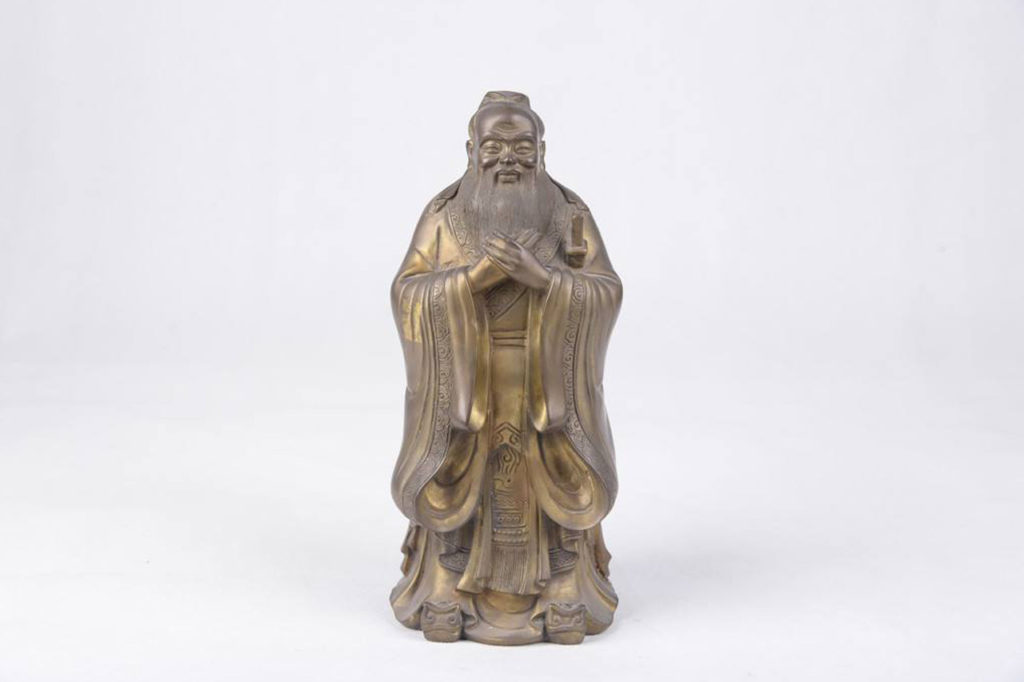If you have ever tried winning projects in China, you might have constantly struggled with all sort of problems. Solutions to your problems might have seemed to be vague, distant, unobtainable. Would you like to be among people who know how to easily win projects in such an exotic country like China? People who step ahead of constant complaints of China copycat? People who grasp the opportunity of employing young, highly motivated Chinese talents for affordable money? Just imagine your life with no headaches and no aspirin. Sleepless nights all go away. The amount of gray hair on your head doesn’t go beyond usual, adequate for your age.

How to easily win design projects in China? Winning projects in China is possible and less complicated than you might think. You just need to remember a couple of issues regarding Chinese approach, and don’t get yourself involved in some semi professional meal deals. Knowing what steers Chinese will help you comfortably place yourself in their shoes of business environment. Looking into expectations and goals of your business partner will make you aware and understand governmental business etiquette in China. This, in turn, will yield huge benefits and help you win projects on every occasion. Only armed up with this knowledge will save you tones of worries, time and money and finally will lead you projects victory in China.
Challenges of 3D Digital Projects in China
This article is not yet another: “5 ways to Win Design Projects in China” written by someone who is paid by the word count and who hasn’t got deep understanding on the subject. Instead, I tried to present the matter straight off my head, keeping it digestible and simple, yet first-hand informative.
China is on tongues of pretty much everyone. Its unprecedented reincarnation impacts virtually every aspect of our lives, but I am sure you know all of this already. For more, click on Wikipedia resources. Let’s get straight to the point. First of all you need to see the opportunities, find motivation for doing business in China.
I heard of some people who would come to China only because of its massive population, low labor cost and possible consumer market. On many occasions, foreign predecessors will lead themselves into a lot of trouble, as they will search engine themselves a wrong partner straight off some “reliable” website. Wrong cooperation method will follow shortly after.
When comes to choosing a partner, it’s vital to make sure that everybody agrees why you are doing what you are doing. They all need to understand your long term objectives, and missions. After all, you didn’t come all the way to China for a short haul.
Even with relatively short term projects, long term relationship and general cooperation outlook should be maintained. This is also what the Chinese are looking for. Times of quick deals are long over.

China Business Culture
Winning Design Projects with China and be Culture intelligent! This is probably the most important advice for living and doing business in China. You should be able to navigate different cultural context. What does it mean? Back in your home country you “play“ your social game. On daily basis you socialize, negotiate, manage, communicate, express ideas etc. Because you are in your own cultural context, it comes naturally. How about if you had to do it all in different culture context? Some or maybe all of the rules for that social game would change. Some of what you do would get lost in translation, lost its effectiveness, sometimes it could be counter-productive. If you worked in other countries or with people from different cultural background, you might be aware of this through your experience, but essentially everybody who does cross-cultural business activities needs three things:
- Knowledge: the unwritten rules for the social behavior, it is something you should switch your radar onto;
- Motivation: motivate yourself every day, just try harder than you did yesterday;
- Skills: patience when gaining the knowledge and maintaining the motivation.
Here is the trickiest part of them all. When comes to cultural interaction, you should be aware of your own culture, your own habits, even your own “cultural limitations”. How this impacts the way you see the world? How does your sense of being limits the perception towards others? Are you tolerant enough?
People Are Born Connected, Rather Than Born Equal
In the East, there is a very strong sense of connection to your position in your family, in your friendship circle, in society, in your country, in your business. This connection never goes beyond the marked trail.
Westerners are “born equal methodology” means you are coming from a level plain field, but then you can move around, speak up your mind, free your opinions etc. At the same time, there is no sense of being connected in that group. You become more of an individual.
Project Development in China, Influence of The Big Brother
“Lead the people with administrative injunctions and put them in their place with penal law, and they will avoid punishments but will be without a sense of shame. Lead them with excellence and put them in their place through roles and ritual practices, and in addition to developing a sense of shame, they will order themselves harmoniously.” (Analects of Confucius II, 3)

Confucianism exerts huge influence on Chinese culture and will affect your business proceedings. How does this play out in terms of business dealings and cross cultural differences? Confucius was very concerned about social stability. He set up a set of rules towards master-student, father-son etc.
Today, of course, times have changed, however the principles still apply. Virtues of visible hierarchy, such as: humility, respect, harmony even serfdom are apparent in business models, e.g. client-provider, manager-subordinate. Organizations in China are very structured with a clear director, boss or chairman, second in charge, third in charge etc. Everyone respects this hierarchy, no one will really try and overstep the position. Protecting not only your own face, but also your superiors’ faces has become priority. Even if this means turning a blind eye on certain mistakes or problems caused by higher management level. On the other end, subordinates might express low level of involvement due to remuneration issues.
This brings us to another China phenomenon – little respect for copyrights. It is seen differently than in the west, with traditional methods of teaching relying on learning by repeating and understanding a master’s training.
Copying in China is More of an Honor That a Crime
Confucianism was probably the only decent, anti-barbarian “control” method for such vast mass of land and enormous number of people. However, it also has its weak points. Confucianism emphases consistency through formulas and repetition. This left Chinese society somehow backward, as it terribly lacks individualism and creativity. Things are being done without any questioning whether it’s the right, most up to date way to do. In case of a project development, sudden emergencies, there always seems to be someone else responsible, someone else but me! There is always someone else to be sought for, someone else but me!
It’s this lack of willingness to take responsibility that is very off-putting in China. This is clearly visible in school systems, traffic systems, events, rituals, way of thinking. People often turn blind eyes on matters that should matter, and somewhat take on: the go with the flow attitude. Therefore, projects might lack scrutiny, precision, people in charge etc. In worst cases, everyone involved turns a blind eye on obvious problems, and the dirt is swept under a carpet.
In spite of government efforts to boost innovation, little has changed. It’s almost like the Chinese has accepted the title: “the factory” and somewhat rest on laurels.

Of course, some individual exceptions can be found, I personally know some people who are immensely talented and innovative and successfully run their businesses. Majority though has little awareness of the opportunities that the outside world presents.
It is possible that China is a perfect counter balance to the Western world. Control of media and country’s partial alienation could be protective of Chinese unity. Fortunately, it also looks like globalization is doing a lot of good in China, as it brings East and West closer together.

China Automotive Design Marketplace
The marketplace is huge. If you are after the numbers, please refer to Wikipedia.
Not only is Chinese domestic market full of home designed brands, but it is also packed with all sorts of foreign luxurious makes designed locally. China’s home market provides its automakers a solid base for further development. This chance is being taken before our eyes, as numerous China-West car makers joint ventures are being created. China plans to build globally competitive auto companies that will become more and more attractive and reliable over the years. Automotive design skills has been developing along side with the manufacturing boom. It’s only a matter of time when China becomes a key player in designing cars that not only meet our expectation but also exceed them.
Some time ago, there has been a bit of lack of inspiration and confidence that in the last few years has faded away. Chinese car companies have put copying behind them, and now have the confidence to create their own designs. I have personally been staggered at the rate of progress in self-confidence, open mindedness, individualism, courage to take initiative and change direction.
As a natural process, the quality of design is constantly being acknowledged around the world. Chinese designers have been chosen as quests of honor at numerous furniture fairs in the past years, while other projects from China were long listed for Reddot and Dezeen Awards.
The Future

From my own perspective, there is a serious battle going on in China at the moment.
Goods manufacturing in China resembles hand wrestling between some old fashioned, well-established, deeply rooted into minds of elderly Chinese people’s virtues, and some freshly thought-through, innovative ideas for new upcoming generations.
On one hand, there are some state-owned companies, which often provide knock-off but affordable products for the masses. People in such organizations pride themselves as being great followers.
On the other hand, there is an enormous push for private owned businesses, joint ventures which absorb innovation like a dried out sponge. The government pours money to create products and ideas. New R&D centers, design studios pop up like mushrooms. Almost overnight, China has become a platform for advanced prototyping and experimentation. There is a product design cultural change that springs up with enormous energy.
But what all of these mean to you? As business people, your goal is to reduce complexity. Reduce risk of finding a partner, who does not care about a long term relationship, has little to do with innovation and has rusty mind people management board. It certainly won’t be easy to find the right choices, as China resists that, at any given point by making the access to reliable information very limited.
In spite of this, try to find out about your partner company’s nature. Is it a state owned company, private enterprise of mélange of both? What percentage is private and what chunk of stake is held by the government? Finally, please remember that you are coming to China to be a leader, not just a client. You are to show how to do things, not just demand. You are expected to take happenings as they come, not make your own arrangements. Good luck!








